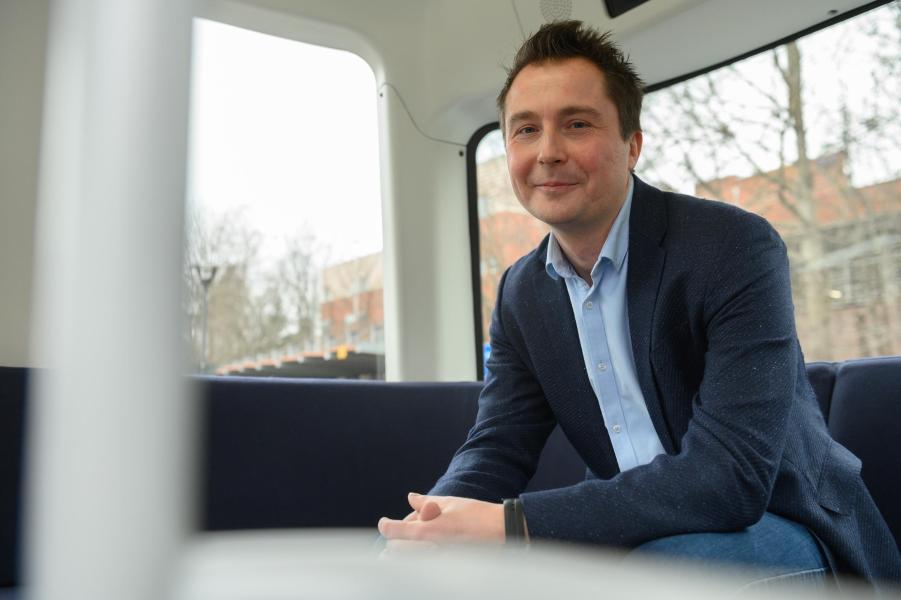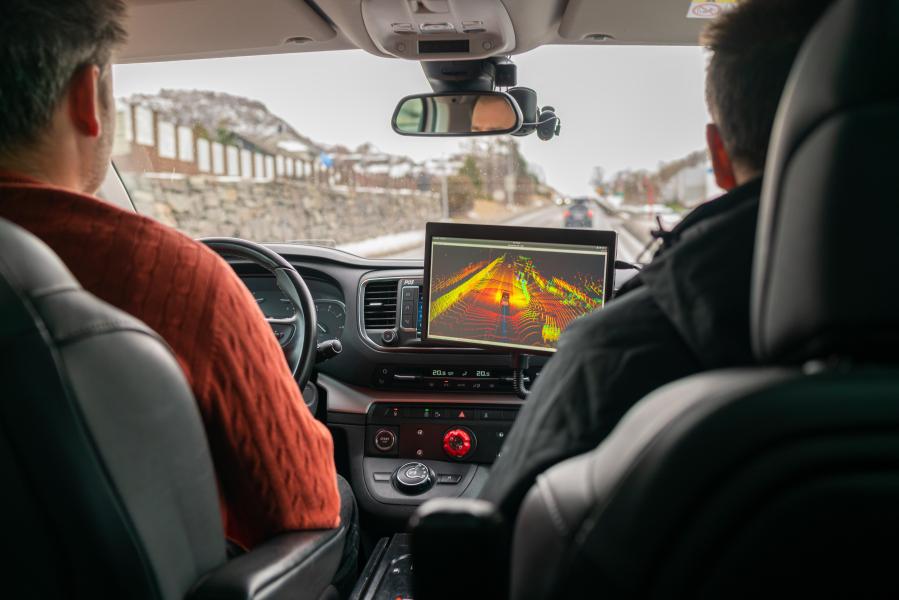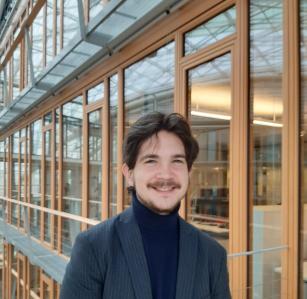A Finnish company believes that automated vehicles will help halt climate change, so it’s developing software to operate them in all weather conditions
In Finland’s dark and frozen winters, Harri Santamala and Jussi Suomela have faced their fair share of extreme weather. Pragmatic Finns, they have adapted to those conditions. As founders of Sensible 4, they have made software that helps automated vehicles cope with thick fog and heavy rain, too.

Harri Santamala
More and more autonomous vehicles are appearing on our roads. But this innovative technology has a problem with one of our most traditional challenges: bad weather. Even the most advanced autonomous vehicles may be unable to drive in a deluge of rain or a bank of fog, because their sensors are hampered by darkness or a lack of landmarks.
That's why the release last month of Sensible 4’s autonomous driving software DAWN™ is so significant. “Our software allows automated operations to take place in locations previously considered unthinkable from the perspective of autonomous driving,” says Santamala.
The European Investment Bank is supporting Sensible 4 with a €8 million loan, signed in November last year, through its European Guarantee Fund, a facility designed to help European businesses deal with the economic impact of the COVID-19 pandemic.
- Read about what needs to be done to expand, modernise, and adapt transports to the needs of the future.
A sensible approach to self-driving technology
Bad weather is challenging enough for human drivers. But it can be even more treacherous for an automated vehicle. Relying on cameras and other sensors to navigate, the vehicle often has trouble “seeing” and reacting fast enough to obstacles in bad weather. Extreme weather can also make it difficult to fix the vehicle’s location and use satellite navigation systems, such as GPS.
Sensible 4’s DAWN software solves this challenge by combining sensor data, a technology called sensor fusion. "Different sensors are mounted on a vehicle such as Lidar, radars, and inertial measurement unit (IMU) to provide information about the vehicle and its surrounding,” says Bilal Ahmad, a product manager at the Sensible 4. “Sensor fusion merges this information, allowing us to position the vehicle, get an accurate mapping of the environment, and detect potential obstacles.”
DAWN can turn any vehicle, with automation software and sensor stack, into a self-driving vehicle. If needed, it also allows a human remote operator to supervise and control multiple vehicles from a remote centre.
European autonomous vehicle technology
Automated vehicle companies are sprouting all over the world. The global autonomous vehicles market demand is expected to reach 3.2 million units by 2030. But Europe is lagging in the artificial intelligence race behind the United States and China.
The European Investment Bank’s European Guarantee Fund aims to boost Europe’s competitiveness by supporting companies hit by the COVID-19 economic downturn. Many of these companies are new tech firms that lack capital to fall back on, even though they need to scale up their business. That’s particularly important in sectors where European companies might otherwise have to look to the US or China for alternative financing.
“The Guarantee Fund allows us to offer long-term venture debt solutions to innovative companies, so they can avoid dilution,” says Maximo Almodovar, a venture debt investment officer at the European Investment Bank. “Founders don’t have to give up their stake in the company and can remain motivated to focus on company growth.”
For Sensible 4, this means more financing to grow and commercialise its products. “The European Investment Bank’s name has a lot of weight,” says Santamala. “Having a known investor’s support is perceived as a seal of credibility by the market.”
A good climate for sustainable transport
The Finnish company believes that automation and shared mobility are the way forward for sustainable transport.
“Many people living in remote areas have limited access to public transport or services,” says Ahmad. “We are developing on-demand functionality to help people request rides based on their needs, to access main buses and train stations or reach their final destination, and decrease the need for privately owned cars.”

Besides last-mile transport, DAWN also fits industrial vehicles and logistics, allowing its remote operator to control simultaneously multiple vehicles
Says Santamala, “As the demand for goods and people will not decrease, we need new solutions to make mobility greener. By sharing an automated car or bus, we can not only reduce our carbon footprint and lower traffic congestion, but we also make our mobility more efficient and accessible.”
